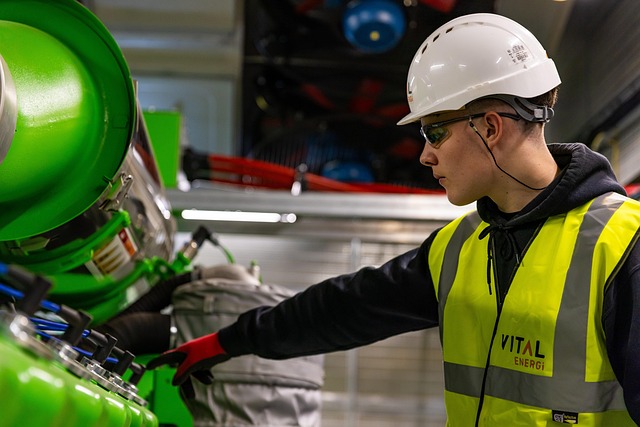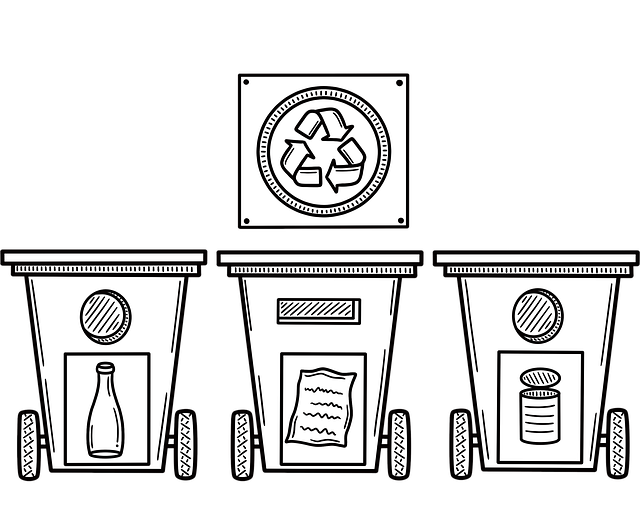Boston and New York City lead the way in sustainable battery recycling with innovative solutions like convenient drop-off points and dedicated centers. Their initiatives, driven by stringent environmental policies, showcase effective public engagement, advanced technology, and collaborative efforts to minimize electronic waste, benefiting local ecosystems and global environmental efforts. This model for urban areas worldwide emphasizes responsible battery management and promotes a circular economy.
Boston, a leader in environmental innovation, is committed to sustainable battery recycling through initiatives that transform urban waste into resources. This article explores “Boston’s Battery Recycling Initiative: A Green Revolution,” delving into challenges and opportunities in urban disposal, technology’s role, community engagement strategies, regulatory frameworks, and future prospects for enhancing Boston’s eco-friendly approach, setting a benchmark for cities like New York.
- Boston's Battery Recycling Initiative: A Green Revolution
- Challenges and Opportunities in Urban Battery Disposal
- The Role of Technology in Efficient Recycling Processes
- Community Engagement for Sustainable Battery Management
- Regulatory Frameworks and Their Impact on Battery Recycling
- Future Prospects: Enhancing Boston's Eco-Friendly Approach
Boston's Battery Recycling Initiative: A Green Revolution

Boston has emerged as a leader in sustainable practices with its innovative Battery Recycling Initiative. This initiative aims to address the growing environmental concern surrounding disposable batteries and their impact on the environment. By implementing a comprehensive recycling program, Boston is taking a significant step towards reducing electronic waste and promoting eco-friendly solutions. The city encourages residents to participate by offering convenient drop-off points at local home improvement stores and establishing dedicated local battery recycling centers across Boston.
This green revolution extends beyond the city’s borders, as it also sets an example for New York City (NYC) and other urban areas. NYC, known for its bustling environment, can learn from Boston’s initiative to establish efficient green battery recycling programs. With a focus on sustainable practices, these efforts not only benefit the local ecosystem but also contribute to a global movement towards a greener future, ensuring that batteries are recycled responsibly and effectively throughout Boston and beyond.
Challenges and Opportunities in Urban Battery Disposal

Boston, like many urban centers, faces significant challenges when it comes to disposing of used batteries responsibly. The sheer volume of batteries from various sources, including consumer electronics and electric vehicles, presents a complex waste management issue. However, this problem also highlights immense opportunities for innovation in battery recycling. With an increasing focus on sustainability, both Boston and New York City (NYC) are exploring enhanced strategies to tackle this challenge.
In NYC, businesses are playing a pivotal role in promoting responsible battery disposal with the introduction of local battery recycling centers. Similarly, eco-conscious initiatives in Boston include the deployment of specialized drop boxes for used batteries, encouraging residents and businesses to contribute to the cause. These efforts not only support global environmental goals but also serve as models for other urban areas struggling with similar issues.
The Role of Technology in Efficient Recycling Processes

Boston’s commitment to sustainable battery recycling is a testament to its forward-thinking approach and advanced technological capabilities. The city has embraced innovative methods, such as eco-conscious battery drop boxes, which make it convenient for residents to responsibly dispose of used batteries. These drop boxes are strategically placed throughout the Boston area recycling centers, ensuring easy access and promoting participation in this crucial environmental initiative.
Technology plays a pivotal role in streamlining the entire recycling process, from collection to disassembly. For instance, advanced sorting machines can efficiently separate different types of batteries, including lithium-ion batteries commonly found in electronic devices. This precision enables specialized facilities in both Boston and New York City (NYC) to recycle these components, reducing environmental impact and recovering valuable materials like cobalt and nickel.
Community Engagement for Sustainable Battery Management

Boston’s commitment to sustainable battery recycling is a testament to its forward-thinking approach, where community engagement plays a pivotal role. The city has recognized that fostering a culture of responsible battery management requires the active participation of residents and local businesses. To achieve this, various initiatives have been launched, such as Boston startup battery upcycling programs that encourage citizens to drop off used batteries at designated collection points, including postal offices throughout the city and area.
This collaborative effort ensures that spent batteries from households and local industries are recycled or upcycled effectively, minimizing their environmental impact. By making it easy for residents to participate through accessible battery collection services in Boston and even in nearby New York, the city is paving the way for a more sustainable future.
Regulatory Frameworks and Their Impact on Battery Recycling

Boston’s commitment to sustainable battery recycling is not just a local initiative but also influenced by robust regulatory frameworks. The state of Massachusetts has implemented stringent environmental policies that directly impact how businesses and residents handle spent batteries, encouraging the development of efficient recycling programs. These regulations require manufacturers to take back and recycle or safely dispose of end-of-life batteries, fostering a responsible approach.
In Boston, this translates into a thriving ecosystem of battery recycling services, with organizations like Boston University integrating sustainable practices into their operations. Even local startups are upcycling batteries, turning them into valuable materials for new products. This collective effort is further boosted by initiatives at farmers markets in NY, where residents can responsibly dispose of or recycle used batteries, contributing to the broader goal of minimizing environmental impact and promoting a circular economy for battery technologies across Boston and beyond.
Future Prospects: Enhancing Boston's Eco-Friendly Approach

Boston’s commitment to sustainable battery recycling is a promising step towards a greener future. The city’s efficient public collection sites and growing network of drop-off points make it easier for residents to contribute to this eco-friendly initiative. As Boston continues to innovate, future prospects look bright with potential partnerships between local businesses, researchers, and policymakers aimed at enhancing the city’s leadership in battery recycling.
These efforts are echoed across state lines as New York City, known for its bustling streets, also embraces sustainable practices with various eco-conscious battery drop-off programs. Rechargeable battery recycling centers in Massachusetts further solidify the region’s dedication to proper battery disposal, ensuring that valuable resources are reclaimed and harmful environmental impacts minimized. By leveraging technology and public awareness, Boston and New York are setting an example for sustainable battery recycling across the nation.
Boston’s commitment to sustainable battery recycling, as exemplified by its comprehensive initiative and community engagement, positions the city as a leader in eco-friendly practices. By addressing challenges through advanced technology and robust regulatory frameworks, Boston is not only enhancing its own environmental sustainability but also setting an example for other urban centers, including New York, worldwide. Future prospects look promising as continuous innovation and collaboration ensure that battery recycling remains a top priority, fostering a greener and more sustainable future for all.














